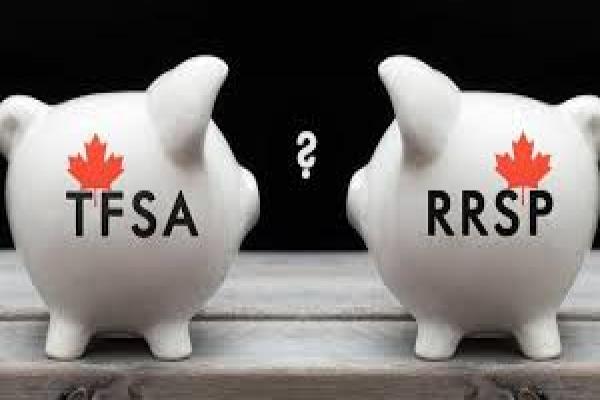TFSA vs RRSP?
If you ask a group of accountants or a group of financial advisors you will get some who say TFSA’s are the answer and others who will argue that RRSP’s are the way to go. I for one think there are a lot of variables before I can answer that question and in fact the right answer might be both. Your income level, age, goals and some retirement planning information such as lifestyle and other sources of income should all be considered. For example, a young person who wants to start saving for a home, car or other major purchase may choose a TFSA for its flexibility; because they won’t take a hit on tax for the growth of the investment or on the withdrawal when they are ready to purchase.
A lot of middle aged clients are beginning to start contributing to their TFSA now or in some cases maxing them out because this will give them tax free growth and access to cash in retirement that won’t affect them tax wise, like CPP/OAS, Pension and RIF income does. This gives them flexibility.
I think the TFSA is one of the best things the government has done to encourage long term savings for Canadians. But there are limits to what you can contribute. An important fact that many don’t realize is you can go back to 2009 when the TFSA was introduced and contribute for all of those years. So, for example, if you come across some extra funds to invest, say from an inheritance, you may want to look at maxing yours and your spouse’s TFSA’s.
2009 through to 2012 you can contribute $5,000 for each of those years.
2013 $5,500
2014 $5,500
2015 $10,000
2016 $5,500
2017 $5,500
As of January 1st, 2018, you can contribute $5,500. So, you can have a total of $57,500.00 invested in your TFSA!
This money can grow Tax Free and because its after tax dollars invested it can be withdrawn with no tax implications. Be careful about withdrawing and paying back once you have maxed out, there can be penalties for over contributing or contributing in the same year. It is best to speak with an advisor.
As for RRSP’s some people have gotten negative about RRSP’s. I still think they are an important vehicle for people to save long term for retirement. Forced savings over a period of time, gives you growth opportunities and the advantage of dollar cost averaging with a monthly pre-authorized payment help us to grow a nest egg to help with our retirement. The fact is most people are not disciplined enough without an automatic withdrawal from their account each month into their RRSP to save any other way. The money you invest grows tax efficiently in the RRSP and is taxed as income when you withdraw it in retirement. You also get the benefit of the contributions you make to your RRSP going against your earned income to lower your taxes you owe. The idea is to get the benefits tax wise in your high earning years; then benefit in retirement when ideally you are in a lower tax bracket then when you were working, so you pay less tax on withdrawals. This can be a problem if you choose or have the means to keep your income the same in retirement and just delayed tax, no real tax advantage. I see this sometimes with business owners.
Another thing people do not realize is in your RRSP or TFSA you can invest in many types of investments. Mutual Funds, Segregated Funds, Stocks, Bonds, GIC’s/GIO’s, Commodities, savings accounts, just to name a few of the most common. Choose something that gives you the returns you are looking for long term and match your risk tolerance. Speak to an advisor to see which is best for you.
So, I hope this helps in clearing up a few things up about the RRSP vs TFSA argument; as I think if you have good information then you can make good decisions. Don’t be afraid to ask, look things up or get a second opinion.
I think either and both are a good solution as long as you are saving somewhere!!
Written by:
Tab Pollock
Financial Advisor and Partner
Neil and Associates Inc.




